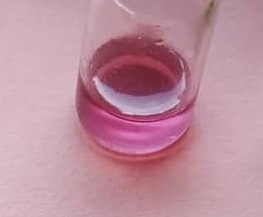June 2018:
It has now been an
unbelievable 16 years (!) since the last major change to the website and forums. When you think that two to three years are an eternity for the Internet sector, that is really something. In any case, there has been so much going on in terms of technology that it has become urgently necessary to completely redesign not only the forums, but also the entire website, from scratch and bring the programming up to date. Naturally, along with this we also introduced various new features; for example it was high time we allowed pictures to be uploaded with a forum post too or enabled users to subscribe to the forums via RSS feeds. And of course we have subsequently included pictures that are saved on external websites and were then integrated here using an img tag, so that no valuable information is lost. In any case, we hope you continue to have fun swapping experiences and trying things out.
Juni 2002:
At this point, we would first like to extend a
big thank-you to all the users of our specialist questions for their lively involvement. Without you, we could never have developed such an informative and high-quality reference guide in such a short time (the first post dates from April 8, 1999).
The large number of posts and high numbers of visitors made it necessary for us to develop the specialist questions ourselves using PHP and MySQL (at last no more annoying advertising banners!). During the course of this, we have hopefully introduced several improvements.
RSS-feeds
The latest entries in all the forums can be conveniently received via RSS feeds. You have the option of subscribing to RSS feeds in your browser, accessing a special feed reader, or displaying the feed on a website. By subscribing to or integrating an RSS feed,you receive short information blocks with the last 10 entries of the forum you have subscribed to. To find an RSS reader, simply google “RSS reader”.
Here are two examples of add-ons to the Chrome browser:
Feedbro, offered by Nodetics
https://chrome.google.com/webstore/detail/feedbro/mefgmmbdailogpfhfblcnnjfmnpnmdfa?hl=de
This reader does not require registration.
Or RSS Feed Reader, offered by feeder.co
https://chrome.google.com/webstore/detail/rss-feed-reader/pnjaodmkngahhkoihejjehlcdlnohgmp?hl=de
Available for Chrome, Safari, iOS and Android, registration required.
To receive the feed, click on the RSS icon on the right, above the forum, under “Enter search term...”.
Helpful tips on use:
Below are a few rules so we can maintain the high quality in the future as well.
- This is a moderated forum. This means that anyone can write whatever they want, and the post will also be saved, but the content will only be published once it has been reviewed by our editorial staff, or deleted if necessary. Therefore, there is no point in posting the same contribution multiple times simply because it doesn’t appear immediately.
- If you would like to see the most recent posts (irrespective of the topic), click Show the latest posts.
- The forum is very comprehensive, and many topics have already been dealt with extensively. Therefore we recommend using the search function or alternatively the advanced search function before you add a new post in order to avoid having posts with the same content.
- After you add or answer a post, you then have a chance to change the text you have written. So read through your text again carefully after saving it and click on “Change post” if necessary.
- If you ask a question, then also expect an answer. Think about this as well when you are wording your question. Hardly anyone will answer vague questions such as “How do I distil schnapps?”, “No oil comes out; what am I doing wrong?” or “The vinegar isn’t fermenting, why?”.
- The three topic areas, i.e. distilling spirits, distilling essential oils/hydrosols and making vinegar, are divided into three different websites. Each website contains the two forums “Recipes” for all the topics concerning fruit and recipes, and “Discussion” for all the other topics related to distilling spirits, essential oils/hydrosols or making vinegar. If we find posts that are unintentionally in the wrong forum, we will move them to the right forum. These posts have not been deleted, just moved.
- ANY TYPE OF ADVERTISING WILL BE DELETED WITHOUT EXCEPTION! This also means seemingly “innocent” posts such as “I have a question about...” or alternatively “Does anyone have experience with...” followed by links or pictures to any external shops.
- The same applies to bizarre posts which most likely come from drunks or don’t have the remotest thing to do with the topic area, e.g. football or “Where can you burn CDs here?” They will be deleted without exception.
- All forums are STRICTLY ANONYMOUS; so never give any real names or addresses.
- Any attempt to make personal contact will be deleted immediately. There are now numerous social networks for this purpose.
- The authors’ IP addresses are NOT saved!
- E-mail addresses are not passed on to third parties or used by us in any other way. You enter your email completely voluntarily and it functions more or less as your ID. In contrast to most other forums, we don’t require any registration or any type of login to be able to participate. Therefore it might happen that a pseudonym is unintentionally used by two people, so there has not been a mix-up in the entries.
So, that’s it. We hope you have a lot of fun swapping experiences, reading, posting and naturally also trying things out afterwards. Dr Malle & Dr Schmickl
Dr. Malle & Dr. Schmickl
